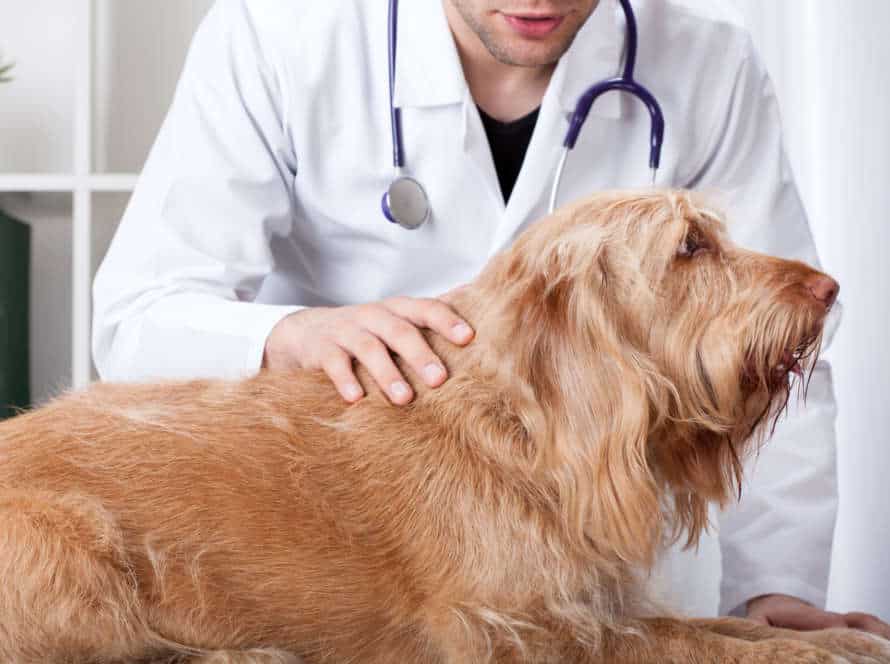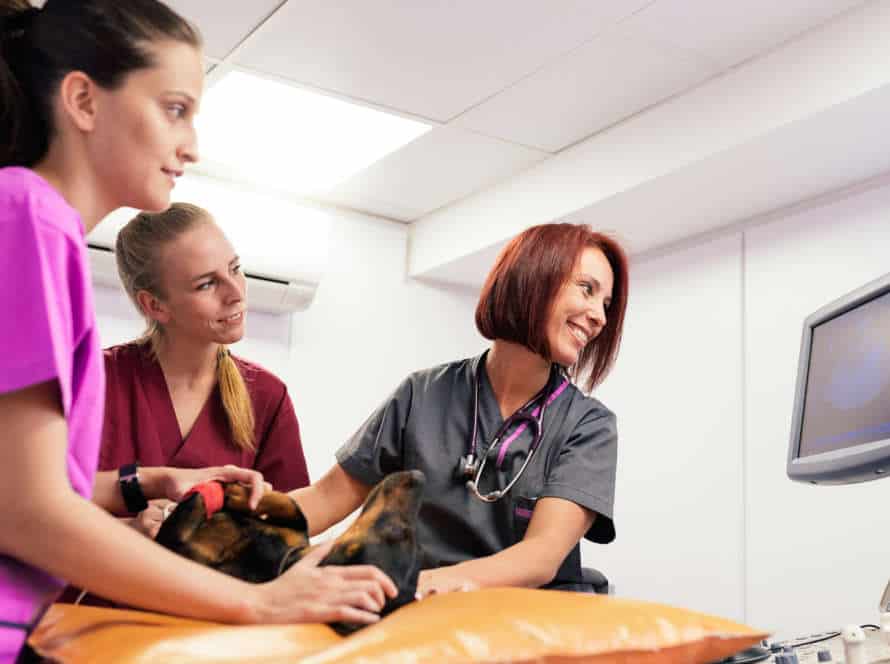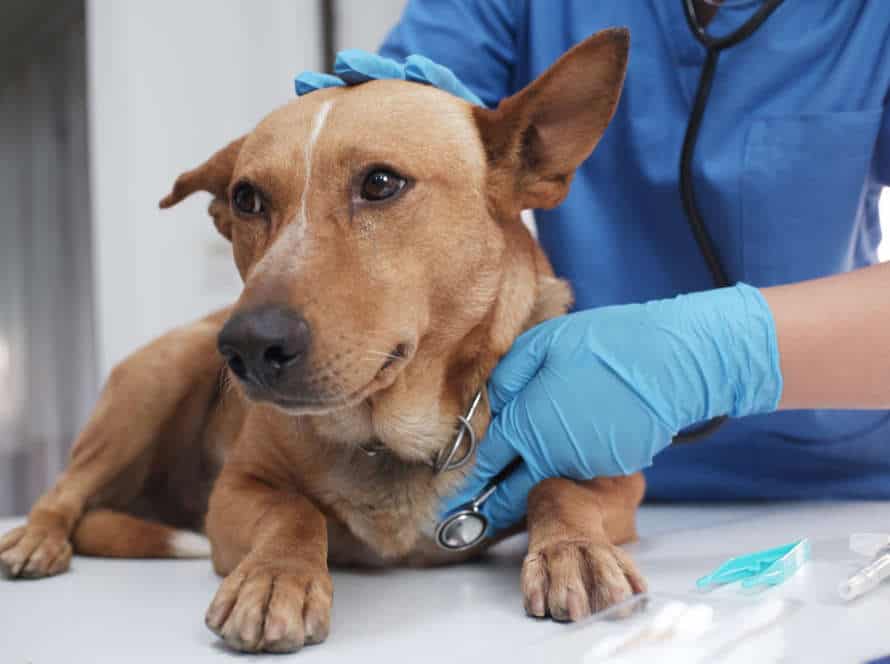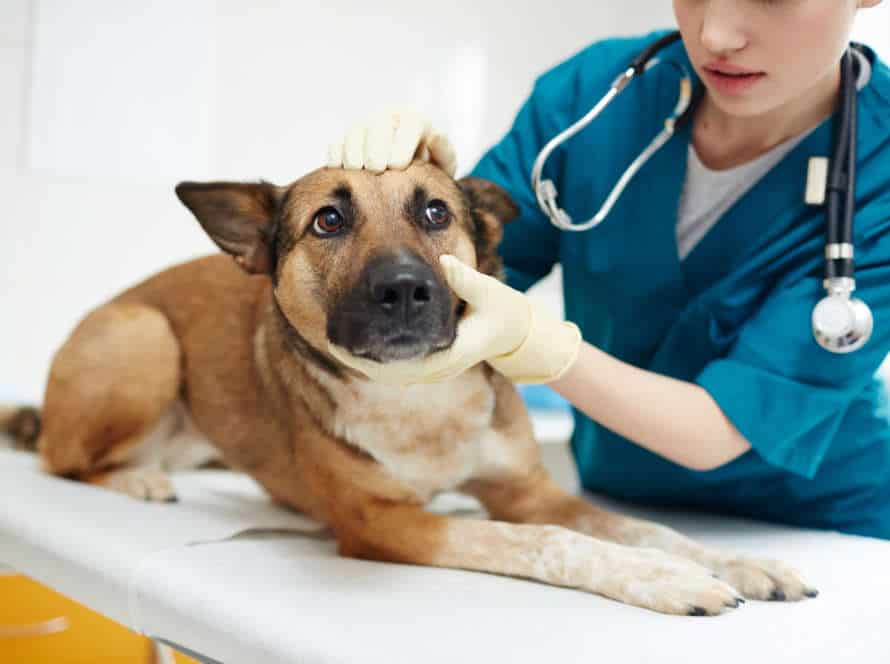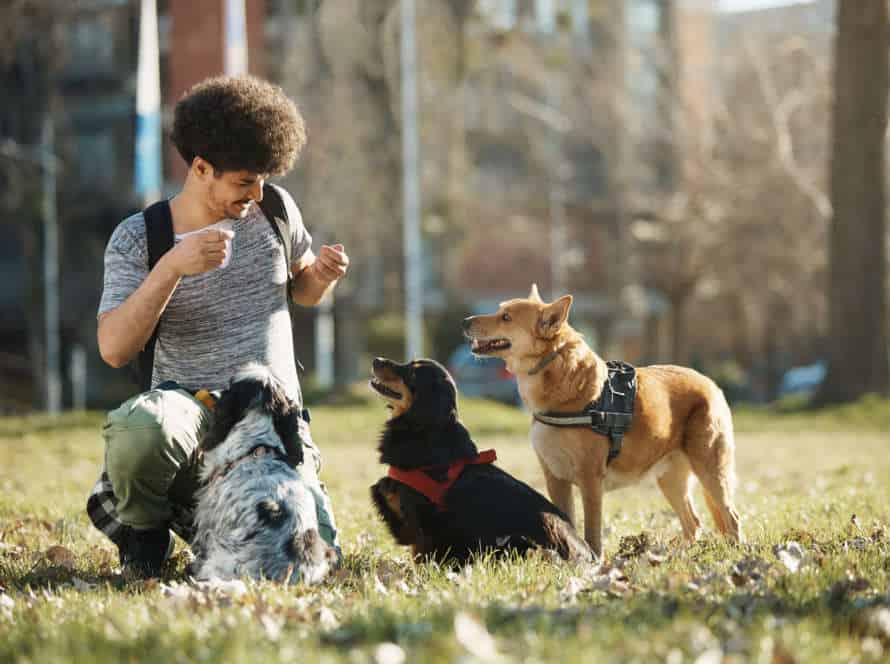How to Choose a Reputable Breeder: Red Flags to Watch For
Picking a dependable breeder for your furry companion? Be cautious. Look out for red flags to dodge getting an unhealthy or unsocialized pet.
Here are some signs to be wary of:
- The breeder not asking any questions about you, your lifestyle, or pet experience.
- The breeder not wanting to show the parents or living conditions of the puppies.
- The breeder offering multiple breeds or unusually high number of litters.
- No health records or check-ups for the puppies.
- No written contract or return policy in case of health or behavior issues.
To guarantee your pet’s health, happiness, and socialization, research well and watch for red flags before selecting a breeder.
Researching Breeders
Reputable breeders? Research is key! Make sure the breeder you choose has a positive reputation. Look out for red flags. What are some of these? Let’s explore!
Determine your desired breed’s characteristics
Before searching for breeders, decide what characteristics you want in your chosen breed. This will help you pick a reputable breeder with high-quality puppies.
Think about:
- Temperament – friendly, loyal, energetic?
- Size – is it right for your home?
- Coat – does it need regular grooming?
- Health – what common health issues?
Once you know the breed’s characteristics, research the breeders. Watch out for warning signs like lack of transparency, forceful sales tactics, and dirty living conditions for dogs.
Utilize breed-specific forums and dog communities
Utilizing breed-specific forums and dog communities can be a great asset when researching reputable breeders. Connecting with owners of the same breed gives you valuable info about the breeder and breed.
Here’s how to make use of breed-specific forums and dog communities:
- Search for forums or online groups related to the breed you’re interested in.
- Join the group and introduce yourself, and your reason for searching a reliable breeder.
- Ask members for recommendations of breeders they’ve had positive experiences with.
- Request input on any flags to look out for while researching breeders.
- Take advantage of the collective experience and knowledge of the group to make an informed decision.
Pro tip– Don’t hesitate to ask questions and follow up with more detailed inquiries when researching breeders. Taking the time to explore the breeder can save you time and heartache in the long run.
Look up local registries for reputable breeders
When searching for a pet, it’s essential to pick a reliable breeder. Check local registries for breeders in your vicinity. These registries provide info about breeders’ practices and guarantee they stick to certain breed standards.
Watch out for red flags like breeders with unhealthy or mistreated animals, breeders who don’t let you visit their facilities, breeders who have multiple breeds for sale, and breeders who prioritize profit over animal welfare.
By using local breed registries, you can be sure you’re dealing with breeders who have the animals’ best interests at heart, and who will give you a healthy, properly socialized pet.
Evaluating Breeder’s Practices
Choosing a good breeder is very significant if you wish to buy a pet. You must cautiously inspect their practices to be sure they are responsible and treat animals kindly. Here is a list of potential red flags when assessing a breeder. Keep these in mind!
Request a Kennel Visit to evaluate conditions
Requesting a kennel visit is essential to evaluate the breeder’s practices and ensure you’re selecting a reliable one. Here are some red flags to look out for:
- Unsanitary conditions. A reliable breeder will keep their kennels clean, free of feces and urine. If you notice a strong smell or unclean conditions, this could be a sign of neglect.
- Overcrowding. An overcrowded kennel can cause behaviour and health issues. A reputable breeder will limit the number of dogs and provide enough space for each to move and rest.
- Health issues. Look for signs of health problems, like lethargy, coughing, or discharge from eyes/nose. A dependable breeder will take the necessary steps to prevent and treat illnesses.
Requesting kennel visits can give you insight into the breeder’s practices and help you choose a responsible and reputable one for your pet.
Take note of litter sizes and frequency of breeding
Evaluating a breeder is important. Look at litter sizes and how often they breed. Here are some ‘red flags’:
- Breeding too much: A good breeder will only breed their animals occasionally. They don’t prioritize profit over their animals’ health.
- Breeding animals that are too young or old: Breeding animals at the right age for their breed is key.
- Large litter sizes: This can mean inbreeding or overbreeding.
- Not disclosing their breeding practices: Honest breeders will answer any questions buyers have about their breeding practices.
Research Breeder’s Social Media Presence
Researching a breeder’s social media is an essential part of evaluating their practices. Red flags on their social media can indicate potential issues. Watch for these red flags:
- No social media presence: Indicates they are not engaging with customers or hiding something.
- Poor quality photos: Indicates they are not investing enough in their breeding program.
- Overposting: May mean they are more interested in selling puppies quickly.
- No interaction with customers: Suggests they don’t want to build relationships.
Remember, social media is only one part of evaluating a breeder. Do research, ask questions, and trust your gut when choosing a breeder for your furry friend.
Health Screening and Vaccination Protocols
Researching breeders? Make sure they adhere to health screening and vaccination protocols. Health screening? To guarantee the dog’s health, free of genetic health issues. Vaccinations? Protect the pup against contagious diseases. Ask the breeder about their protocol. Ensure they are following the medical guidelines of their country or state.
Inquire about the Breeder’s Veterinary and Vaccination Protocol
When selecting a good breeder for your pet, it’s essential to ask about their vet and vaccination protocol. This can influence your pet’s health. These are some warning signs to look out for:
- No health screening tests on their breeding animals.
- No vaccinations given to their puppies, or no records of vaccinations provided.
- Unable to meet their vet or get references for veterinary care.
- Not allowing you to see their facility, so you can check the living conditions of their breeding animals and puppies.
If you spot any of these indications, it’s best to move on and pick a breeder that values the welfare of their animals. Pro Tip: Do research and ask for advice from reliable sources before choosing a breeder for your pet!
Evaluate seller’s vaccination timeline
Searching for a trustworthy breeder? Make sure to evaluate their puppies’ vaccination timeline! Here are some things to consider:
- Check if the breeder follows their country’s or state’s regulations.
- Ask if the puppies have been vaccinated accordingly for their age.
- Find out if they’ve been dewormed regularly.
- If the breeder hasn’t vaccinated the puppies yet, ask why.
It is vital to choose a breeder who follows health screening and vaccination protocols – this shows their priority is the puppies’ health.
Review the seller’s Health guarantee policy
When selecting a breeder, it is essential to check their health guarantee policy. This policy shows the measures the breeder has taken to stop the spread of diseases and safeguard the animals’ health.
Remember these points when looking at a seller’s health guarantee policy:
- Health screenings: A trusty breeder should carry out frequent health screenings on their animals to make sure they are free of any genetic issues, infectious diseases, or other health issues.
- Vaccination protocols: The animals should get proper vaccinations that suit their breed and age. The breeder should give documentation of the vaccinations for each animal.
- Quarantine procedures: The breeder should have a quarantine area to isolate sick animals and prevent the spread of diseases.
By studying the seller’s health guarantee policy, you can be confident the animals you adopt are healthy and free from illnesses. Pro tip: Before buying, always ask for vet records and health screenings documents.
Temperament and Behavior Evaluation
Choosing a breeder? It’s vital to assess the pup’s or dog’s temperament and behaviour. Many breeders do genetic testing, but this isn’t a promise of great temper and conduct. To really know if the pup matches you, observations and evaluation are needed. Here’s what to watch for:
Evaluate the Breeder’s Method of Socialization
A good breeder knows the importance of socializing a pup. To assess their methods, check the following:
- Prenatal care – They should provide proper nutrition and care to the mother dog.
- Early handling – Touching the puppies from birth builds trust.
- Stimuli – Expose the pups to sights, sounds, smells, and textures.
- Dogs – Introduce them to other breeds, ages, and sizes.
- Living conditions – Ensure the environment is safe, stimulating, and clean.
- Pro Tip – Visit the facility and observe the puppies. See how they interact with their surroundings.
Evaluate Parent Temperament and Socialization
Evaluating the ‘rents of your pup-to-be is a must! A responsible breeder should be happy to share info about their behavior and traits. Here’s what to look out for:
- Temperament: Mom and Dad should be friendly, not aggressive or overly shy.
- Socialization: Puppies should be exposed to different sounds, animals and experiences from an early age.
- Health: Ensure the breeder provides health certs and screenings for both parents.
- Red flags: Watch out for breeders who can’t provide info about the parents’ temperament and socialization.
Do your homework and choose a breeder who looks after their dogs – that way you’ll bring home a happy, healthy pup!
Observe puppy play to understand behavior tendencies
Gazing at puppies playing can give us great knowledge into their nature and behavior. This can help pick the ideal furry companion from a reliable breeder.
Here are a few ideas to watch puppy play:
- Look at how they interact with each other. Note who is dominant, submissive or independent.
- Notice how they react to new objects or sounds. Some may be inquisitive and outgoing, while others may be more wary or timid.
- Notice their body language. Are they laid-back, confident and welcoming, or are they uneasy and worried?
- Ask the breeder about the pup’s socialization, training and the temperament of their parents.
These observations can detect potential issues, and guarantee that you pick a breeder who puts a priority on the health and well-being of their puppies.
Red Flags indicating an Unreliable Breeder
Choosing a pet breeder? It’s important to select someone reliable, knowledgeable, and responsible. What are the red flags? Be aware of the signs that could point to an unreliable, irresponsible, or unethical breeder. Let’s have a look – so you can make an educated decision.
Being asked to wire funds or pay via MoneyGram
If a breeder requests payment via wire funds or MoneyGram, this could be a red flag that the breeder is not reputable. Additional warning signs include:
- Willing to sell to anyone without questions about living conditions or familiarity with pets.
- No health records or guarantee for pet.
- Animals living in unclean or inhumane conditions.
- Not permitting buyer to see pet’s parents or living conditions.
- Not asking the buyer questions about lifestyle, living conditions, or experience with pets.
On the other hand, reliable breeders will be open about animal care methods, animal welfare practices, and any health issues the pet may have. They’ll also ask questions to make sure the pet goes to a loving home, and will let the buyer visit their facilities and meet the pet’s parents.
Tip: Do your research before buying a pet and avoid breeders with any of the above red flags.
Multiple Breeds for sale on the seller’s site
Buying a pet online may seem simple. But watch out for warning signs of an unreliable breeder. Choose a reputable one for a healthy, well-cared-for pet.
Here are some red flags to watch for:
- Transparency: Vague or untrue info on breed, health, or pedigree.
- Unsanitary conditions: Check the living environment is clean.
- Socialization: Pets should be sociable and used to people.
- Health checks: Breeder should have regular checks and tests.
Avoid any breeder that shows these signs. Opt for one that puts animal welfare first.
Lack of relevant information (vaccination, vet stats, etc.) on the seller’s website.
When searching for a reliable breeder, be on the lookout for red flags. An absence of info like vaccination records and vet stats is one.
A dependable breeder should give the needed details upfront. This includes info on the breeding program and what standards of care they use.
Additionally, they should offer vaccination records, vet certifications, and socialization records.
Beware of a breeder who can’t give this kind of info or won’t show documentation. A responsible breeder puts the health and safety of their puppies first and will provide all the info for an educated choice.
Frequently Asked Questions
1. How can I tell if a breeder is reputable?
A reputable breeder will have a good reputation in the community and be willing to provide references from other happy customers. They should also be knowledgeable about their breed, provide proper documentation for their dogs, and have a clean and safe breeding environment.
2. What are some red flags to watch for when choosing a breeder?
Red flags to watch for include breeders who don’t allow you to see the breeding environment or meet the dogs, who offer puppies for sale before they are eight weeks old, who do not provide proper documentation, and who breed an excessive number of dogs.
3. How can I ensure that the breeder is ethical and takes good care of their dogs?
You can ask the breeder about their breeding practices, including how many litters they have each year and how they socialize and care for their puppies. You can also ask to see the breeding area and meet the parents of the puppies to ensure they are healthy and happy.
4. Do reputable breeders charge more than other breeders?
Reputable breeders may charge more for their puppies, but it is worth it to ensure that you are getting a healthy and well-cared-for pet. They also may have a waiting list for their puppies, as they only breed when they feel they can provide the best possible care for the litter.
5. How can I find a reputable breeder for my desired breed?
You can research breeders online, ask for recommendations from local breed clubs or veterinarians, and attend dog shows or events to meet breeders in person. It’s important to do your research and ask plenty of questions before committing to a breeder.
6. Is it ever okay to purchase a puppy from a pet store?
Pet store puppies are often sourced from puppy mills, which are notorious for poor breeding practices and lack of proper care for the animals. It’s best to avoid purchasing puppies from pet stores and instead adopt from a shelter or rescue, or seek out a reputable breeder.


